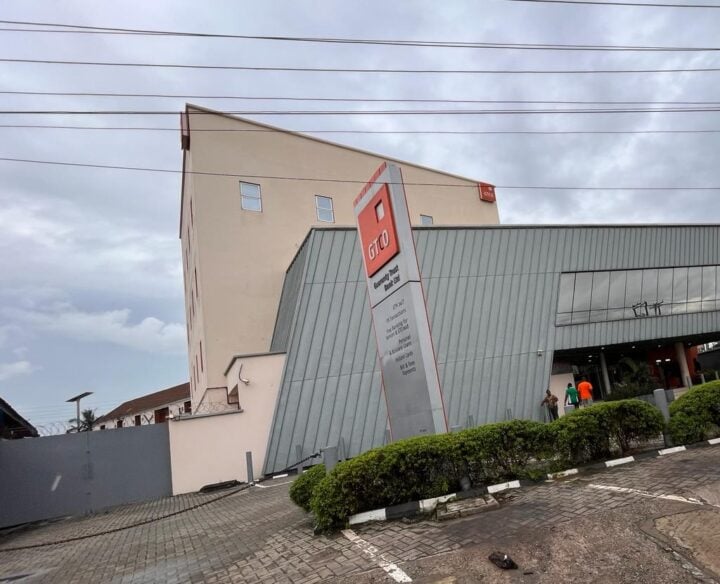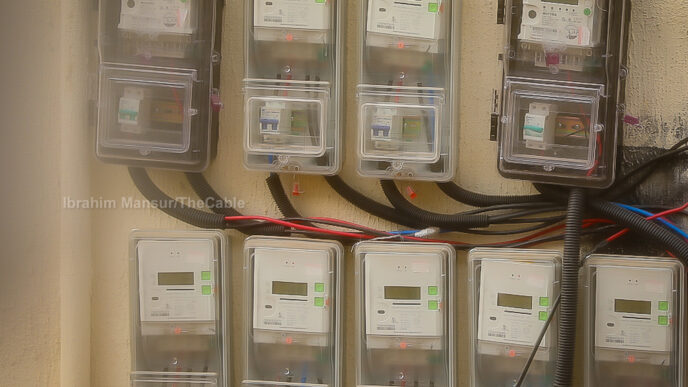The Nigerian Association of Chambers of Commerce, Industry, Mines, and Agriculture (NACCIMA) says the economic reforms of President Bola Tinubu negatively affected businesses in 2024 but favoured the public sector.
In a statement on Monday, Dele Oye, the national president of NACCIMA, urged the government to implement reforms to address imbalances threatening businesses across the country.
Oye said the data and metrics indicate that the Nigerian private sector has borne the brunt of the nation’s current economic reforms, grappling with high inflation, surging borrowing costs, and currency devaluation.
He stressed the urgent need for policies that support the private sector, calling for a collaborative approach where government leaders recognise the sector as a critical stakeholder in driving economic growth.
Advertisement
“We should agree that the 2024 economic performance was unsatisfactory for the private sector. All data, metrics and consequent statistics confirm that the Nigerian private sector has borne fully, the negative burdens of the current economic reforms,” Oye said.
“While in contrast, the Nigerian public sector continues to thrive and expand. All economic benefits of the recent economic reforms have been translated to the public sector through high capital transfers and revenues.
“The private sector faced higher inflation, higher cost of borrowing/repayment for existing loans, the 2.4 billion USD CBN unpaid forwards, currency devaluation and higher costs in all sectors of the economy.
Advertisement
“This continued imbalance caused by increased public sector expenditure has destroyed value in the private sector due to excessive fiscal deficits which are financed through government borrowing at very high unsustainable interest rates.”
The NACCIMA president recommended immediate measures to mitigate the strain on businesses, including reducing public sector expenditure, curbing fiscal deficits, and creating a more conducive environment for private sector growth.
“Fiscal deficits arise when public sector expenditure exceeds public sector income. The funding of these fiscal deficits through borrowing results in high interest rates and high inflation,” he said.
“The solution to high interest rates and high inflation is for the public sector to spend less and to start becoming an efficient productive unit.
Advertisement
“Efficient allocation of existing resources can help reduce excessive borrowing.
“Other countries like Argentina have made political choices to eliminate recurrent budget deficits. The Nigerian budget for elected and unelected politicians can be adjusted.
“The size and number of government-funded agencies can be reduced and taxes should be further reduced which will attract greater private sector investment.
“The government should create an environment where the private sector can take the lead in economic ventures. This includes deregulation in most areas, reducing bureaucratic red tape, and enhancing ease of doing business in Nigeria. (Regulatory Agencies like Standards Organisation, NAFDAC etc can be reformed to adopt internationally acceptable standards for Nigeria.)”
Advertisement
‘REDUCE CORPORATE TAX TO 19% TO GROW ECONOMY’
Oye further stressed the importance of tax reforms, calling for reductions in the corporate tax rate to 19 percent and value-added tax (VAT) to 7.5 percent.
Advertisement
He argued that lower taxes would stimulate economic growth and ultimately lead to higher tax revenues for the government.
Commenting on the 2024 tax bills, Oye criticised the ongoing disputes between federal and state governments over revenue sharing.
Advertisement
“The current media engagement between federal and state governments in newspaper and press releases only further confirms the disconnect described above,” he said.
“The beneficiary parties receiving tax payer funds engage each other on how to secure a larger portion of tax payer funds without consideration for the public or tax payer interest.
Advertisement
“We believe corporate taxes should be further reduced to 19% and VAT pegged at 7.5%. We believe this will grow the economy and result in higher tax revenues for the government. As a caveat to protect government revenues, each tax payer must not pay less than the preceding tax year.”
Oye added that significant taxpayers, such as the telecommunications sector, which requires reforms to boost tax revenues, should not be overlooked.
Add a comment









